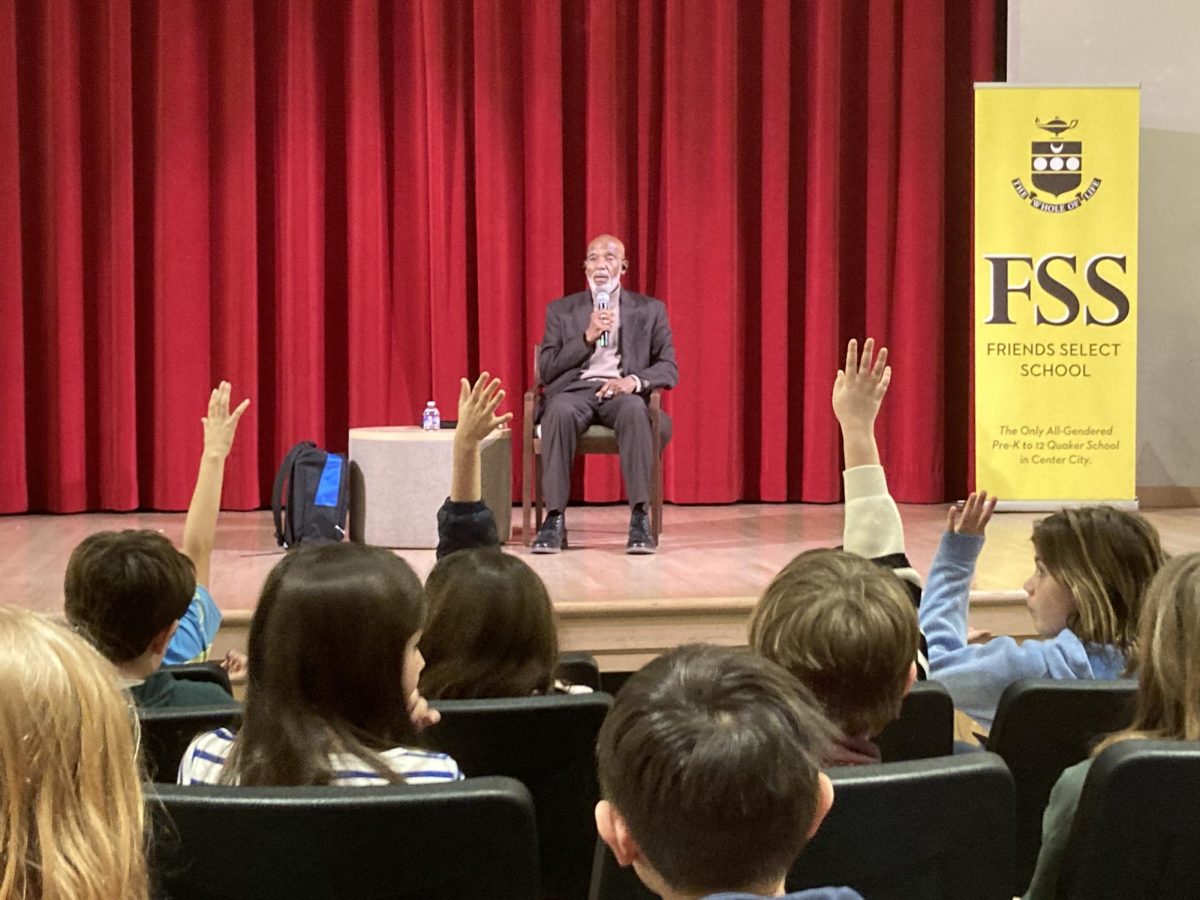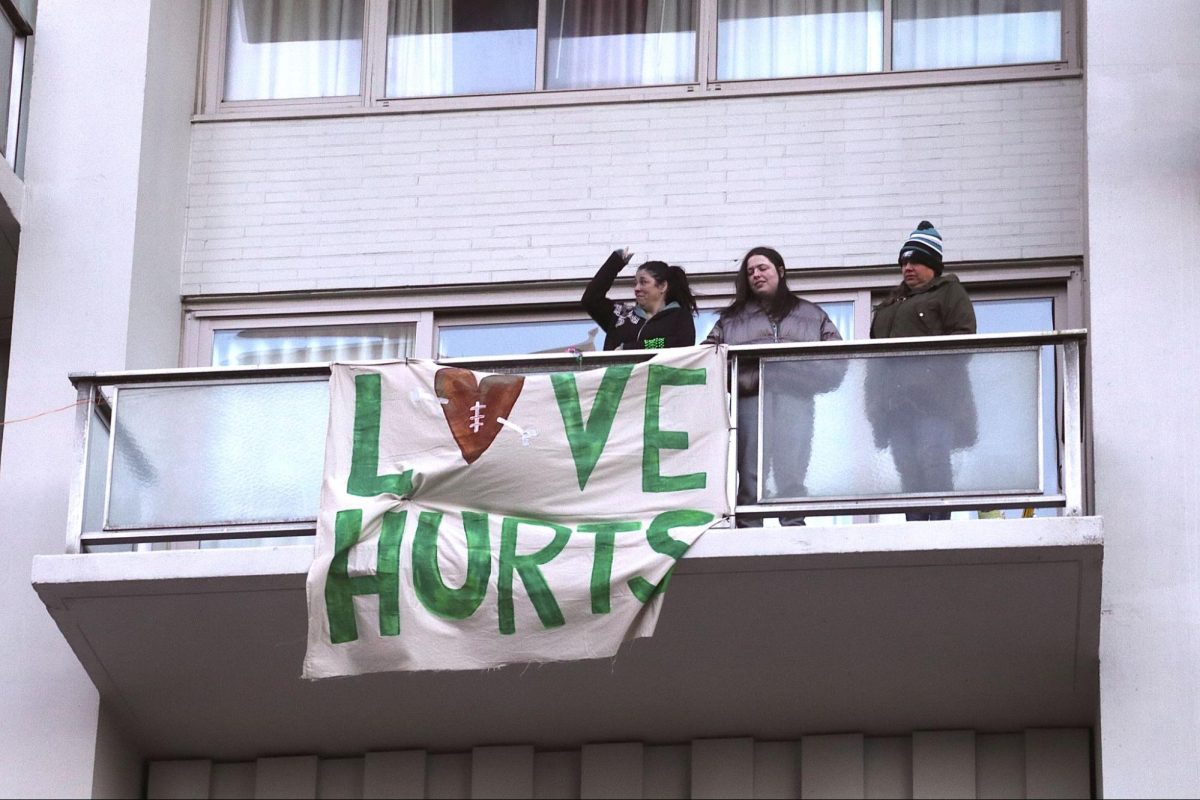You’re Used to Getting Grades– What if You Could Grade Your Teachers?
We all know the nervous feeling of opening our report cards. Maybe there was a grade or incident that you know didn’t feel fair but will still have an effect on you and your grade. What if there was a way to explain this to your teachers and come up with a solution?
At most schools, students receive a report card in which teachers reflect on a student’s strengths and weaknesses throughout the quarter, semester, or year. Some schools give students the chance to reflect on their experience with teachers through varied forms of teacher evaluations. At Friends Select, we follow the norm of quarterly student evaluations, but do not have any formal system for teacher evaluations. Incorporating teacher evaluations into the FSS curriculum would be a great way to amplify student voices and improve students’ academic experiences.
There is debate as to whether or not students’ feedback for their teachers is productive. Some teachers argue that a student cannot measure the effectiveness of teaching. This is because students will only be able to measure their personal experiences which will differ from student to student. Ultimately, it would be extremely difficult to measure a teacher’s effectiveness in an efficient and statistical manner. On the other hand, others argue that it is beneficial to both the student and teacher. Shaeley Santiago, an ESL instructional coach and teacher for the Ames Community school district in Ames, Iowa argues that student feedback is a productive form of teacher evaluation: “By using student suggestions to improve our practice, we elevate student status in the classroom and show we value their input.” It is easy for students to feel as if their voice does not matter when an adult is constantly evaluating them and their efforts with no opportunity to reciprocate this practice. Leveling the playing field by reinforcing the idea that adults care about what students have to say will make students feel more inclined to work hard and enjoy learning.
Public schools in Boston began to integrate teaching evaluations into their curriculum. Some teachers were resistant to this implementation, fearing that the surveys would take away valuable class time and be used vengefully. The district also struggled to generate questions that younger students could comprehend. After a year of surveying, Ross Wilson, Boston’s Assistant Superintendent for Teacher and Leadership Effectiveness, said: “I was surprised last year by the pilot results. Kids from all grades took the survey and they all took it seriously. Some critics believe some students will be vindictive, but we found quite the opposite. We learned a lot about what was happening in classrooms and, more broadly, in schools. We learned how teachers engage their students and how students themselves think about the learning process and what it means to them.”
Researchers from the University of California Berkeley say that teaching evaluation cannot precisely measure the effectiveness of teachers, and therefore feedback from students should not be considered in manners of promotion, tenure, and salary. “The common practice of relying on averages of student teaching evaluation scores as the primary measure of teaching effectiveness for promotion and tenure decisions should be abandoned for substantive and statistical reasons,” they said.
A teaching advice site suggests that student feedback is the most effective way to deliver quality education to students. Nobody has as much perspective on a teacher’s performance as students. Therefore, there is no one better to deliver feedback on what is and is not productive in the classroom. “Feedback also gives teachers concrete advice on making the education process more enjoyable and effective. Educators who are more responsive to their students stand a better chance of providing a quality educational experience,” said a member of the Resilient Educator member of the Editorial Team.
Incorporating student feedback on teachers would suit Friends Select well. The school values the Quaker SPICES, including equality. If students were given a chance to report back on what is and isn’t working for them, it would mitigate the strange power dynamic of teachers being “above” their students, which often leaves students feeling disregarded and unimportant. Because Friends Select values each student’s individuality, it would be a progressive step to provide forums with the option of anonymity where students could reflect through writing or directed questions on their personal experiences in the classroom.
In my experience at Friends Select, every teacher makes a huge effort to adjust their teaching methods in order to accommodate every student. They even make extra efforts when certain things aren’t working. However, everybody learns differently. Consequently, with all of the extra effort that teachers make, if something still isn’t working, it can feel intimidating to confront the teacher to reach a solution. The feeling that “nothing is working” can cause students to feel guilt, unworthiness, and frustration. Having allocated spaces where students can truly elaborate on what is good for them and what isn’t is a large step to making them feel like they matter. If teachers were to receive feedback and adjust their lessons, they would begin to see positive results. It is impossible for a teacher to shape their methods differently for each individual student, however, they can build off of commonalities in responses.






















